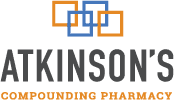
5 Nursing Skills You Can’t Learn in the Classroom
Nursing school will prepare you for a career of hands-on care by requiring courses in anatomy, physiology, chemistry, nutrition, and psychology. But only by cultivating the five nursing skills you can’t learn in the classroom can you become the most effective advocate for your patients. Learn more about how you can grow these skills to truly excel in your profession.
Compassion and Empathy
Physicians are sometimes criticized for a lack of “bedside manner” —sometimes being so efficient and to the point that they can come off as brusque or uncaring. Because nurses provide far more hands-on care than doctors, a good bedside manner is crucial in building trust with your patients and their loved ones.
You can develop this trait by focusing on the similarities between you (or your closest loved ones) and a patient. Reminding yourself that even the most difficult or combative patient needs compassionate care, can help you avoid a knee-jerk reaction to bad behavior.
Cultural Sensitivity
In today’s multicultural society, it’s crucial to show respect and understanding to individuals from all cultures. For example, some cultures are deeply opposed to certain concepts, such as do not resuscitate orders.
By explaining conditions, care requirements, and treatment options in a straightforward and non-judgmental way, and by accommodating your patients’ desires and preferences, you’ll be able to provide compassionate care to patients from all walks of life.
Effective Communication
Although physicians develop treatment plans and protocols, nurses are frequently the ones who deliver this information to the patient. And because many patients are preoccupied with their health (and, perhaps, unfamiliar with many medical terms and procedures), being able to effectively communicate with patients and their loved ones is vital. Using too much medical jargon, speaking too quickly, or providing irrelevant information can leave your patients with more questions than answers.
Meticulous Attention to Detail
Every high-quality hospital and medical office put a number of safeguards in place to ensure that patients receive the right medication, the right amount of medication, and the right medical procedures. But relying on these safeguards should never lead to complacency.
Whether you’re naturally a detail-oriented person or not, it’s important to develop meticulous attention to detail—not just to avoid these medical errors, but to provide your patients with the best possible care. Though there is much to do, try to focus on remaining mindful during every encounter with a patient instead of always looking one or two steps ahead.
Good Time Management
Today’s nurses are busier than ever. But while it can be tempting to skimp on patient encounters as a way to free up time, this can ultimately compromise the care you provide. Instead, look for other ways to manage your time efficiently and stay organized; whether this means a bullet journal, a HIPAA-compliant phone app, or delegating work to others who have more free time.
From medication delivery to durable medical equipment, Atkinson’s Pharmacy provides a wide range of services. These services can benefit hospital nurses, long-term care nurses, and clinic nurses alike. Visit our website to learn more about what we can offer or get in touch with one of our associates today.
